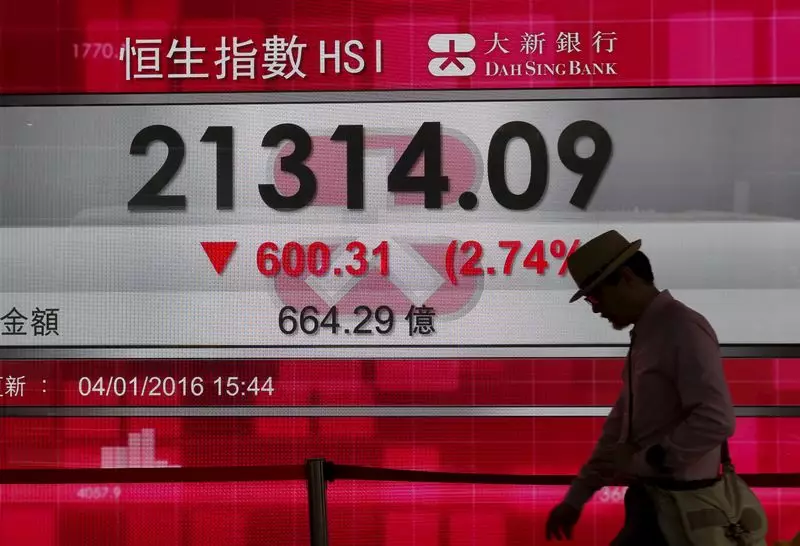In recent developments, China’s financial markets have displayed significant fluctuations following the announcement of expansive policy measures. These initiatives have drawn comparisons to a “bazooka” approach, indicating an aggressive stance aimed at revitalizing the struggling economy. Analysts at BCA Research have highlighted that such measures are strategically crafted to boost the performance of Chinese equities, which have endured a prolonged period of underperformance. In the wake of this announcement, there is a palpable sense of enthusiasm among investors as optimism surges about potential gains in the stock market.
However, this initial excitement prompts a deeper scrutiny of whether these measures can truly transcend mere market recovery and lead to tangible improvements in China’s broader economic landscape. Despite the appearance of a notable uptick in market sentiment, a lingering question arises—will this “bazooka” effectively catalyze a recovery in real economic activities, or will it merely deliver superficial boosts to stock prices?
Structural Challenges Linger
The response from analysts at BCA Research reveals a cautious outlook. While the prospect of a bullish trend in Chinese stocks exists, the fundamental challenges plaguing the real economy are far from resolved. Analysts express doubt that these policies will induce significant changes in China’s economic cycle in the short run. Key inhibitors include persisting debt deflation, tepid consumer sentiment, and waning confidence among private enterprises and local authorities.
It is essential to recognize that the recent subsidy, representing only 0.8% of China’s GDP, is unlikely to transform the economic landscape significantly. Without more impactful measures, such as a large-scale quantitative easing program targeted at the ailing property sector, the anticipated economic revival may remain elusive. Observations concerning the property market reveal it as a critical area of concern, with its struggles exerting substantial pressure on national economic vitality.
Historical Context and Future Implications
The backdrop of previous policy interventions, particularly those aimed at stabilizing the property market in 2022, provides insight into the effectiveness of such strategies. Unfortunately, these efforts failed to engender a meaningful rebound, eroding confidence in the efficacy of current approaches. As analysts suggest, a more comprehensive monetary stimulus would be vital to reinvigorate borrowing and spending; however, the prevailing high borrowing costs complicate these dynamics under deflationary conditions.
The inherent skepticism among business leaders regarding government policies affecting large private entities adds another layer of complexity to this landscape. Local governments, hindered by existing debt obligations and strict anticorruption campaigns, may further dilute the impact of newly proposed initiatives designed to invigorate economic growth.
While recent policy measures have sparked transient enthusiasm in China’s financial markets, their ability to foster a real economic bounce-back remains in question. The deep-rooted structural challenges that the economy faces necessitate a more robust and strategically focused approach beyond the current policy announcements. For sustainable recovery, a concerted effort is essential to address the pressing issues within the property sector, consumer sentiment, and potential barriers imposed by local governance. The path forward will require keen observation and adaptive strategies to navigate the complexities of China’s economic revival.

